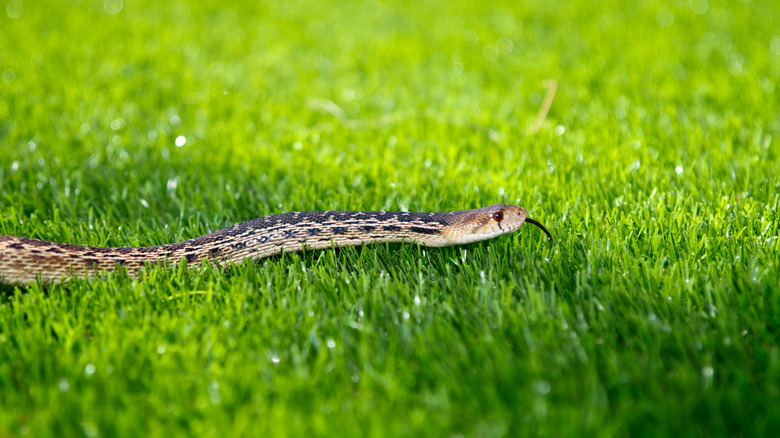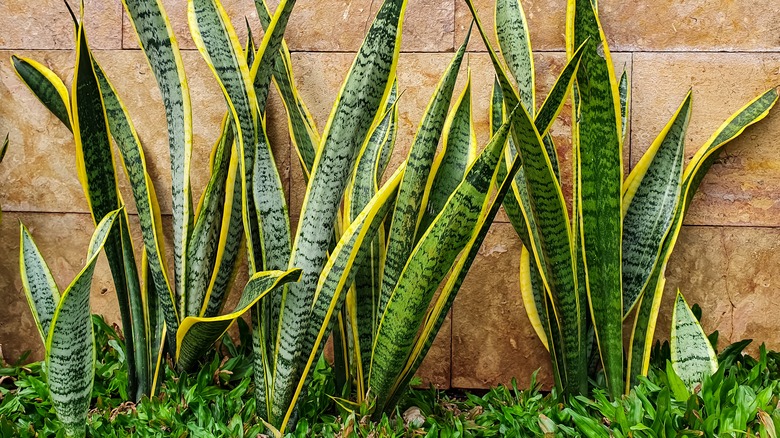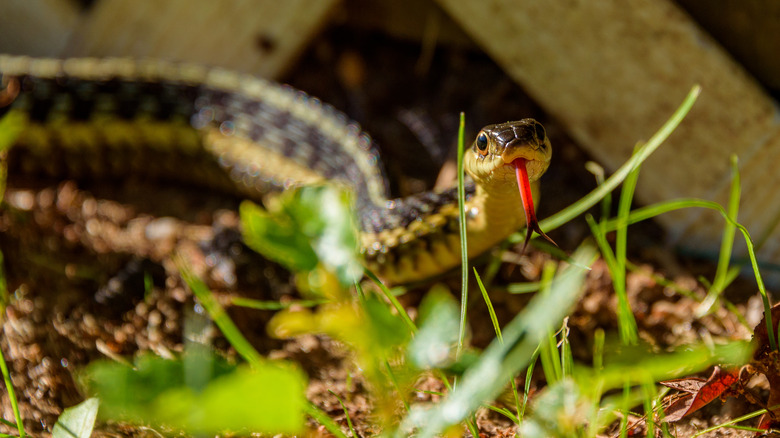Stop Snakes From Sneaking Around In Your Lawn With This Popular Plant
Snakes love areas with an abundance of plants, tall grass, access to water, and small animals to eat, which is why they might end up spending time in your yard. Since snakes often bite and are sometimes venomous, it's best to encourage these reptiles to abandon your property. Ironically, snake plants, also known as Sansevieria or mother-in-law's tongue, can help with repelling these slithering creatures. Snake plants are a common houseplant that are known for being low maintenance and easy to care for, but they can also be grown outdoors.
These succulents originated in southern Africa and prefer warmer temperatures over 70 degrees Fahrenheit. If you live in a colder area, your snake plants may not be of much help in the winter. Because Sansevieria doesn't like direct sunlight, it's perfect for shaded spots in your yard where snakes are likely hiding. By growing mother-in-law's tongue outside, you can keep snakes out of your yard and spend time outside without worry.
How to care for snake plants
When choosing where to grow snake plants, it's important to consider that these succulents will spread and could take over your yard if you're not careful. It's best to either keep your snake plants in pots or to plant them in a space separated from the rest of your lawn. While mother-in-law's tongue is tolerant of most conditions, it does not do well with overly moist soil, making it important to only water when the dirt begins to feel dry. Using potting soil that's made for succulents will also aid in preventing the dirt from becoming too wet.
If you decide to plant your mother-in-law's tongue in pots, you can move them inside as the weather gets colder and put them back on your lawn in the summer. When watering potted sansevieria, it's best to do so from the bottom of the pot, to help the plant develop stronger roots.
Why snakes don't like snake plants
While many pest deterrents rely on smell to repel animals, snakes don't like mother-in-law's tongue because of its appearance and texture. The shape of the leaves with their pointed tips and sharp features look intimidating to snakes, and they will avoid slithering past snake plants. These reptiles may also be repelled by the feeling of the plants when they touch them, making it distressing for the animals to move through an area where snake plants are growing. Since the sight of these plants is what's most disturbing to them, even potted sansevieria should be effective for ridding your property of snakes.
This natural pest control method is rather safe since it won't hurt or kill snakes or other animals. It is also an easier pest control option, especially for those in warmer climates, because snake plants are rather simple to care for. While snake plants help deter these reptiles, it may be best to contact a professional if you're having serious issues with snakes.


